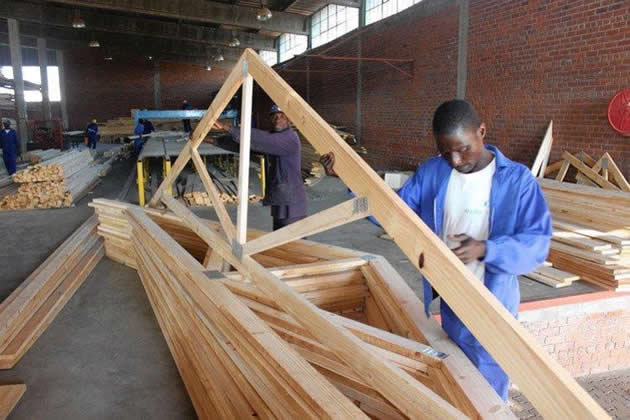Allied Timbers financial woes deepen

Martin Kadzere : Senior Business Reporter
ALLIED Timbers Zimbabwe continues to sink deeper into financial abyss with delays in recapitalising the country’s largest forests and timber company increasing the risk of possible closure. With problems from obsolete equipment at most of the estates compounded by growing frustration among thousands of employees who have gone for eight months without getting paid, the company requires immediate capital injection to reverse the trend.Disgruntled employees have become a big potential threat and a risk to the business amid unconfirmed reports that they may have been complicit in the burning of the forests. There is huge backlog of safety checks and maintenance, with some of the equipment well behind schedules, posing danger to forests, equipment and workers.
Most equipment at the Mutare factory is dilapidated and also poses serious danger to workers. Some ancillary divisions were closed and the company has resorted to outsourcing services.
Some interviewed workers admitted that the bulk of the equipment had become too old as no meaningful investment was done after the company was unbundled from Forestry Commission.
In the absence of proper recapitalisation, the company is striping spares from some machines to fix faulty ones. Since 2010, several lines at different sites were decommissioned.
There has also been a huge mismatch between timber planting and harvesting, a development which, if not urgently rectified, may see the company running out of mature trees to harvest in the next few years. At the moment, the harvesting of trees, which was being done by contracted saw millers was stopped about three months ago.
The company said the move was meant to ensure resource sustainability. It had awarded contracts to about 50 saw mill operators under a payment arrangement where harvested timber was equally shared between the company and the contractor. The arrangement was to cover Allied’s production shortfalls since it did not have capacity.
Allied said it has established the rate at which the forests were being extracted was unsustainable.
“We have no milling equipment and all contracts have been stopped. The saw mills are only processing residual material. But not only that, the saw mills have become so old; very inefficient and dangerous to operate. And imagine, eight months without pay. Horrible,” said one employee who requested not to be named for fear of victimisation.
Some workers felt the decision to stop all the contracts was ill advised, saying a gradual approach would have worked well for the company while it acquired its own equipment. Allied workers committee chairperson, Mr Munei Muziyawo confirmed non-payment of salaries.
“Cumulatively, the company will be in arrears of eight months by end of March,” he said. “It is sad . . . most of the workers have very limited alternative incomes.”
Allied Timbers was born out of Forestry Commission in Zimbabwe in 2005. The idea of unbundling the commission was to separate regulatory activities from the commercial activities.
Employees were inherited on the basis of where they were working before. So those in commercial went to the company and those in regulatory activities remained with the Commission. Forests and saw mills were taken over by the new entity.
“I recall that despite economic challenges, particularly inflation, both companies were reporting healthy positions, surpluses in the case of Forestry Commission and profit for FCZ,” said a former director of the parent ministry.
“I can’t say the magnitudes unfortunately.”
The Allied board, led by Mr Itai Ndudzo has attributed the problems facing the company to mismanagement, in an apparent reference to former CEO Dr Joseph Kanyenye.
There is also suspicion that Dr Kanyakanye could have been involved in shady dealings and a forensic audit was instituted.
“It is complete and the Comptroller Auditor General is studying the findings of the audit,” said Mr Ndudzo in a recent interview.
Allied spokesperson Ms Veronica Gutu said challenges facing the organisation would be a thing of past as the company had started receiving loans from local banks for recapitalisation.
“Allied Timbers got assistance from IDBZ and Agribank. We are also waiting for the Government of Belarus facility. As you can see we have got antiquated machinery,” she said.









Comments